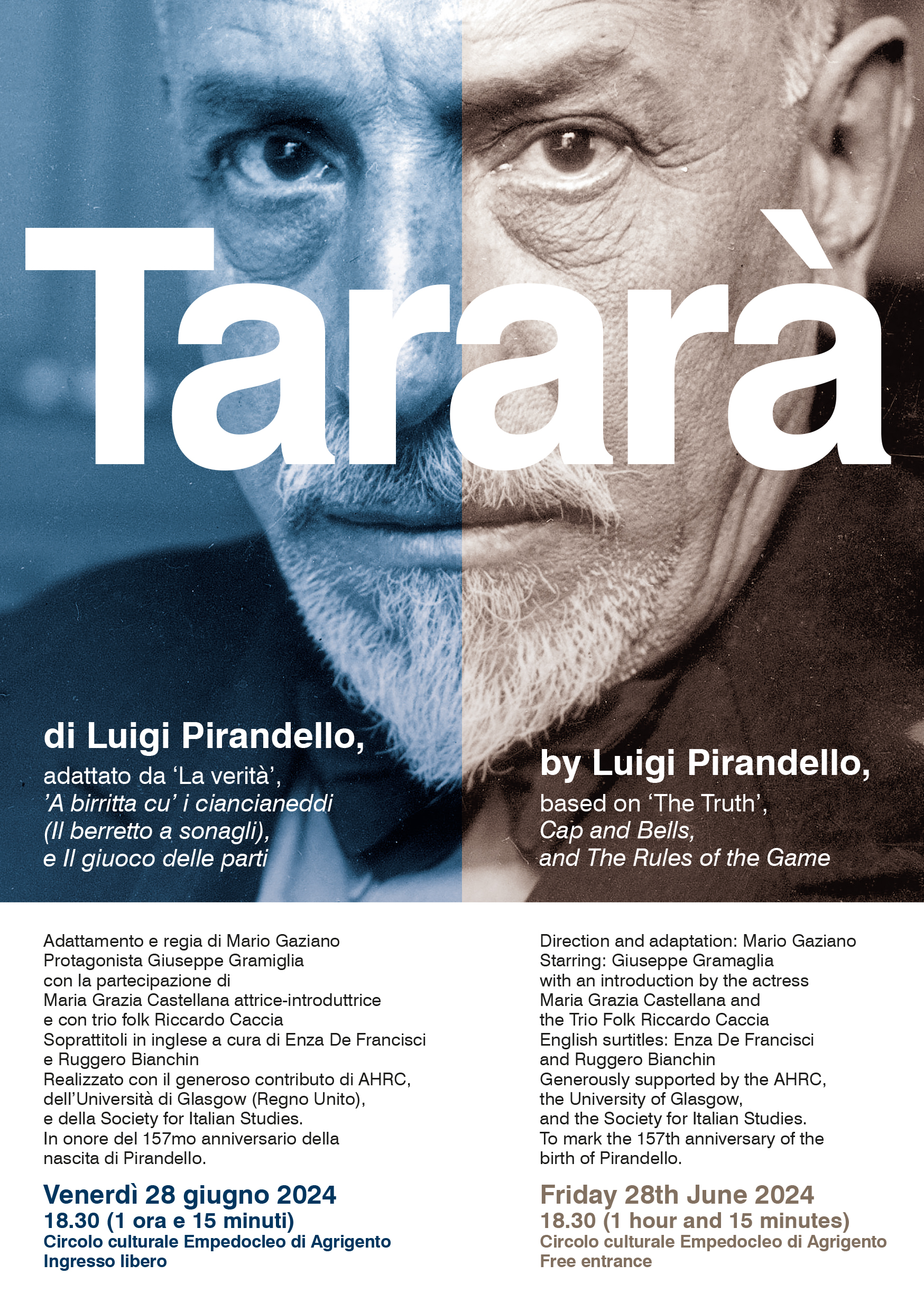Tararà by Luigi Pirandello at the Circolo Empedocleo in Agrigento on 28th June 2024.
Published: 16 September 2024
On 28th June 2024 at the Circolo Empedocleo in Agrigento, the play Tararà by the Nobel-Prize winning playwright Luigi Pirandello (1867-1936) opened to a full house as part of the project, ‘Translating Pirandello in Agrigento: City of Culture (2025)’.
This project, led by Enza De Francisci (Senior Lecturer in Translation Studies), is funded by the Arts and Humanities Research Council’s Impact Acceleration Account in collaboration with Glasgow University with the generous support of the Society for Italian Studies.
On 28 June 2024, the Circolo Empedocleo in Agrigento, Sicily, welcomed Enza De Francisci to introduce her AHRC IAA project, ‘Translating Pirandello in Agrigento: City of Culture (2025)’. The event opened the project’s case-study play, Tararà, interpreted by the actor, Giuseppe Gramaglia, which took place in front of a full house. As Agrigento becomes Italy’s City of Culture in 2025, the project, in partnership with the Pirandello Stable Festival theatre company directed by Mario Gaziano, is reflecting on the need to make theatre productions more accessible for in-coming audiences. To support this, the project is maximising the opportunity of the City of Culture celebrations by producing – for the first time in the city’s history – new English surtitles around the Sicilian play, Tararà, with excerpts adapted from ‘La verità’ (1912)’ [The Truth], A birritta cu’ i ciancianeddi (Il berretto a sonagli, 1916) [Cap and Bells], and Il giuoco delle parti (1918) [The Rules of the Game] by Nobel-Prize winning author, Luigi Pirandello (1867-1936) in his birthplace of Agrigento. The new translation resources co-created with the project’s Research Assistant, Ruggero Bianchin, including English surtitles, and Italian-English bilingual advertisements and theatre programmes, aimed at offering an innovative model for safeguarding vulnerable languages. While lesser-spoken languages tend to be dethroned by ‘dominant’ languages in translation processes, the surtitles and bilingual materials allowed wider audiences to follow the performances in the original language without erasing it from the stage, thereby protecting the use of Sicilian (considered a “vulnerable language” by UNESCO). Moreover, with Tararà we wished to draw attention to how theatre can be used to safeguard against gender-based violence, in particular violence against women, called femminicidio in Italy. Tararà murders his cheating wife not out of jealousy, but because of the inexorable ‘eye of the people’ who see and know of her betrayal, and who he must therefore inexorably kill. It has been estimated that there are approximately 150 cases of femminicidio in Italy per year. A similar endemic has emerged in Scotland, with a recent 60% increase in the number of women killed each year. Our ambition here was to promote public awareness of how an endangered artform like Sicilian dialect theatre can be used to the protection of minoritized groups and genders. For more information, please click here.
First published: 16 September 2024
<< News


